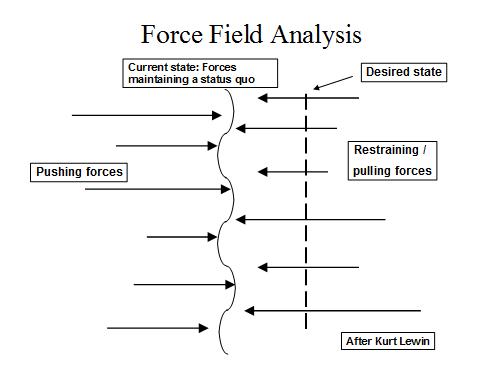A planned change is a change planned by the organization; it does not happen by itself. It is affected by the organization with the purpose of achieving something that might otherwise by unattainable or attainable with great difficulty. Through planned change, an organization can achieve its goals rapidly. The basic reasons for planned change are:
- To improve the means for satisfying economic needs of members
- To increase profitability
- To promote human work for human beings
- To contribute to individual satisfaction and social well being
The planned organizational change process may comprise, basically the three following steps:
- Planning for change
- Assessing change forces
- Implementing the change
